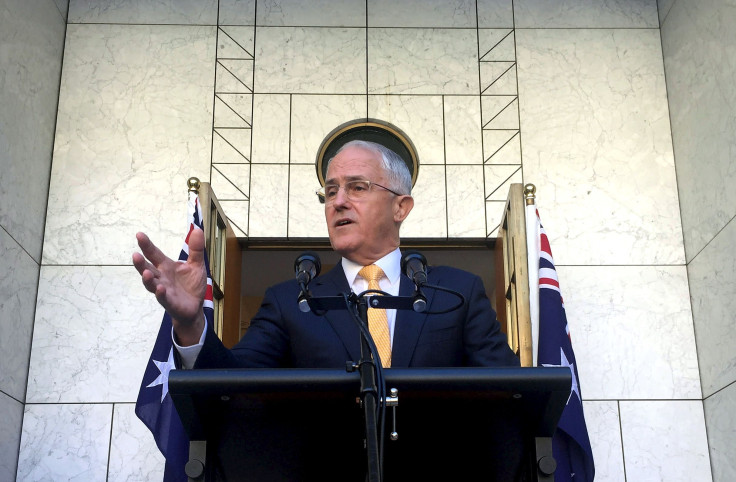State and territory leaders split over Turnbull’s state income tax reform proposal ahead of COAG meeting

Update: State and territory leaders have rejected the Prime Minister's proposal to allow states to collect income tax. They have nevertheless agreed to consider directly accessing the federal government's income tax pool instead of relying on Commonwealth grants for funding.
Prime Minister Malcolm Turnbull has proposed what he describes as “the most fundamental reform to the federation in generations” by allowing states to collect income tax.
The changes, to be discussed at a Council of Australian Governments (COAG) meeting on Friday, would be the first time since the Second World War that income taxes are not solely collected by the federal government.
Under the proposal, federal income tax would be lowered with states allowed to pick up the slack by levying their own income taxes.
Government services such education and health would therefore be paid for by state revenue rather than Commonwealth grants, which are currently distributed by the federal government amongst states.
Though the Prime Minister has said that the overall tax burden would not increase, states and territories would be free to raise or lower income taxes in future.
Mixed Reception
The proposal will be discussed by the Prime Minister with the leaders of each state and territory, as well as a representative of the Australian Local Government association.
Labor premiers Daniel Andrews and Jay Weatherill of Victoria and South Australia, respectively, have already spoken out against the move, with Weatherill telling the ABC that it was “something that wouldn’t be practical.”
Andrews was more blunt: “Calling this a thought bubble would be kind.”
“In a conversation with the Prime Minister he indicated to me this would be revenue neutral. Well, if it’s revenue neutral, how's it dealing with funding gaps in hospitals and schools?”
Fellow Labor leader, ACT Chief Minister Andrew Barr, disagreed, arguing that Turnbull’s plan was “worthy of consideration” because of its potential to address financial imbalance between the federal, and state and territorial governments.
West Australian Premier Colin Barnett of the Prime Minister’s Liberal Party also supports the plan, arguing that it affords states greater financial autonomy.
Meanwhile, Liberal Premier Mike Baird of New South Wales said that while he supported the idea of states collecting a portion of income tax, he was concerned that Turnbull’s proposal could lead to increased taxes and in turn discrepancies between states.
Tasmanian Premier Will Hodgman was the most vocal Liberal opponent of the Prime Minister’s proposal, dismissing the proposals as unfair.
“We are a state that is small and with a demographic profile that would disadvantage us against other states,” he said.
Queensland Labor Premier Annastacia Palaszczuk also slammed the plan, joking that placing the onus of tax collection on states would render the federal government redundant.
“It has been the Commonwealth which has had the responsibility for over 70 years to raise income tax,” she told The Courier Mail. “If they want to give all of the income tax to the states, yes, we’d be more than happy with that.
“And then we wouldn’t need a federal government would we?”
Meanwhile, Northern Territory Liberal Chief Minister Adam Giles told the Sydney Morning Herald that he was happy to debate the proposal, saying “we've been calling for a debate for a while, it's very easy to do nothing.”
“The PM is having a go so good on him.”
Further Discussion
The Prime Minister has also introduced smaller proposals relating to government services ahead of Friday’s COAG meeting.
Access to preschool and vocational education reforms are both on the agenda, with ACT Chief Minister Andrew Barr having raised concerns regarding a lack of federal funding ahead of the meeting.
Domestic violence prevention is also set to be discussed in the wake of Victorian Premier Daniel Andrews’ pledge to follow all recommendations found in the Royal Commission into Family Violence report.
The federal government is also expected to discuss the $3 billion in short-term funding for hospitals as well as the minimisation of unnecessary hospitalisations by introducing a specific healthcare package for patients with chronic conditions.





















